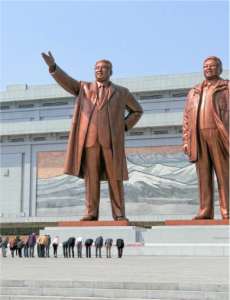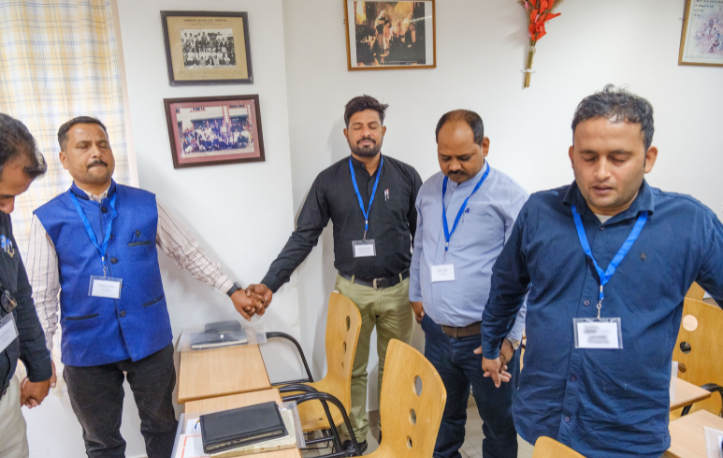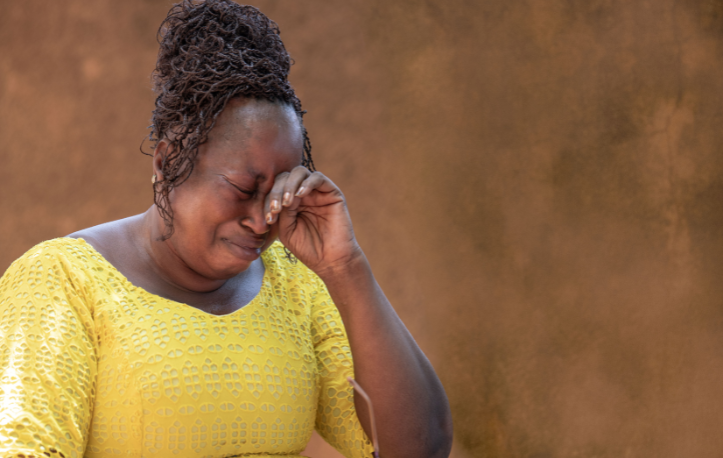Eun-Ji was a smuggler by necessity.In the mid-1990s, North Korea suffered a series of catastrophic floods that wiped out crops and farmland. Effects of the natural disaster were compounded by the totalitarian regime’s adherence to a philosophy of self-reliance that limited imports, foreign investments and international aid, resulting in starvation for hundreds of thousands of North Koreans.
During the March of Suffering, as these years of famine are called, the average North Korean, specifically those not in the military or part of the Workers’ Party elite, had a choice to make: remain a law-abiding citizen and die waiting for rations, or engage in smuggling or other illegal activities and hope to survive. Eun-Ji, who was desperate to stay alive and support her family, opted for the second choice. She became a smuggler.
Smuggling, however, came with great risk. While border police and customs officials on both sides of the North Korea–China border could sometimes be bribed to look the other way, it wasn’t a certainty, and penalties could range from stiff fines to imprisonment in a labour camp. In addition, the river crossing, terrain and weather could be treacherous, as could the unscrupulous suppliers on one side and potential informers in every neighbourhood on the other side.
With no alternative, Eun-Ji accepted the dangers and began crossing the border into China, where she had relatives who would help her. During her time there, she became acquainted with some Korean Christians who invited her to a Sunday worship service. At first, Eun-Ji was disgusted at how unpatriotic the service was; she had been taught her whole life that North Korea’s founder, Kim Il Sung, and his family should be the only focus of adoration and praise. But she stayed.
The church gave rice to Eun-Ji and others like her to share with their families in North Korea, so she returned to the church each time she came to China to pick up more goods to smuggle. Gradually, she began to learn about Christianity and take a deeper interest. Over time, she received discipleship training and learned how to disciple others so she could share the gospel with her friends and family back home.
But soon, she had another decision to make: would she accept the extreme risk of smuggling Bibles into North Korea?
Bibles are the ultimate contraband in North Korea. Getting caught smuggling Bibles into the country almost certainly leads to arrest, imprisonment or even execution. Those convicted of smuggling or possessing other items of contraband can often receive a reduced sentence or avoid punishment entirely by offering a bribe. But, according to many North Koreans, harsh sentences are unavoidable for merely possessing a Bible.
Another smuggler who came to know Christ after defecting from North Korea, Dan-Bi, was warned by fellow smugglers about the severe consequences of being caught with a Bible. They told her that one man caught crossing the border with a Bible didn’t even get a chance to bribe his captors. He was summarily sentenced to imprisonment in a concentration camp known as kwanliso, where conditions are so bad that nearly 40% of inmates die of starvation.

Propaganda against religion and the Bible is so pervasive in North Korea that even a mention of the Bible can elicit extreme fear. “When I first received this thing called the Bible, I was very terrified and suffered,” said a North Korean Christian who received God’s Word while working abroad. “I thought I finally was caught by the hand of evil. I even thought to report this person who delivered it to me to the authorities.”
Ultimately, Eun-Ji decided to accept the risk and smuggle Bibles back into North Korea. When preparing for each trip, she filled her pack with rice and buried a single Bible in the middle of it. After each successful crossing, she added the new Bible to a growing stack in her home. Knowing that if she were caught with the Bibles she could face imprisonment or execution, she began to worry about what to do with the Bibles. For the safety of both herself and the Bibles, she decided to wrap them in vinyl and bury them in her yard.
Eun-Ji knew that she might not be able to share her precious but dangerous contraband for a long time, but, slowly and carefully, she began to share what she had learned about Jesus Christ with trusted family members who came to her for food. Even distributing the food required caution, as North Koreans are rewarded for reporting on neighbours who break the law. So Eun-Ji waited patiently, the Bibles hidden only steps away, to give God’s Word to anyone who demonstrated a sustained interest in receiving salvation through faith in Christ.
Eun-Ji and her family eventually defected to South Korea. She thinks the Bibles may still be buried in the yard of her former home, waiting to be discovered by another North Korean hungry for the grace and hope of the gospel.
Though she wasn’t able to distribute the Bibles before fleeing her country, Eun-Ji and many other North Koreans have discovered the life-giving importance of God’s Word for those hungry for the truth. The North Korean believer who was at first terrified by the Bible he received is a testimony to its transforming power. “I am not worried about it any more,” he said. “If I die here, am I not going to the place called heaven because of faith? I only have this mind, that I want my beloved family and friends to go to heaven, not hell, so that I need to share it with my people around me. I am giving thanks to God for letting me become who I am now.”




Submit a Prayer